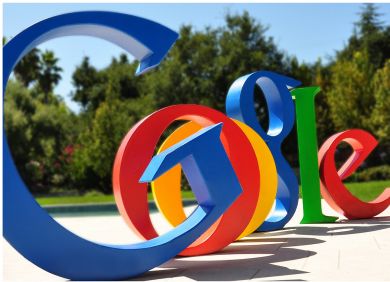Google may have plenty of projects to keep it busy, but it certainly knows how to run a very successful business.
Indeed, it is worth remembering that it went public in August 2004 at $85 (£52) per share. Fast forward a few years to 30 January, and Google’s stock price rose $28 (£17) on the day to close at $1,139 (£692). And it kept moving north to $1,182 (£718) in after-hours trading, up another $43 (£26).
Stellar Results
This is because the Mountain View, California-based search and web services giant continued to impress Wall Street and investors alike, when Google revealed another stellar quarterly earnings report.
For the fourth quarter 2013, Google posted a net profit of $3.4 billion (£2bn) compared with $2.9 billion (£1.7bn) in Q4 2012. Revenues were also up at $16.9 billion (£10.2bn) – or $9.90 (£6) per share – compared to the $14.4 billion (£8.7bn) it posted in the same year-ago quarter.
About $10.55 billion (£6.4bn) of revenue emanated from Google’s sites and $3.52 billion (£2.1bn) from partner sites, Google said.
Google Drivers
Most of this financial success is based on continued good news in terms of its bread-and-butter business – attracting eyeballs for advertising purposes. Paid clicks, which measure volume in Google’s advertising businesses, were improved 31 percent over 2012, while the cost per click – a clear measure of the margin on its core business – fell 11 percent year over year.
 CEO and co-founder Larry Page described the report as representing “great progress across a wide range of product improvements and business goals.”
CEO and co-founder Larry Page described the report as representing “great progress across a wide range of product improvements and business goals.”
Application sales, mostly for games on mobile devices, and sales of devices were also important drivers. The pre-holiday release of the Nexus 5 tablet and strong demand for the Chromecast television dongle also made an impact.
“Revenue growth was driven by content and app sales in the Google Play store,” Google CFO Patrick Pichette, said on the conference call to analysts and journalists. “Play hardware sales drove a big chunk of quarter-over-quarter growth. Nexus 5 was very strong for us, and the Chromecast was a best seller all quarter.”
Chromebook laptop sales were strong, but they did not contribute much to Google’s bottom line. “Most Chromebooks are sold through third parties, so we don’t book revenue on them,” Pichette said.
The sales of much of Motorola’s mobile properties to China’s Lenovo, the $3.2 billion (£1.9bn) acquisition of Nest Labs, a patent-license deal with Samsung, the acquisitions of artificial intelligence provider DeepMind all did not have a material effect on the Q4 2013 report but will figure prominently in the next one.
Are you a Google expert? Take our quiz!
Originally published on eWeek.




